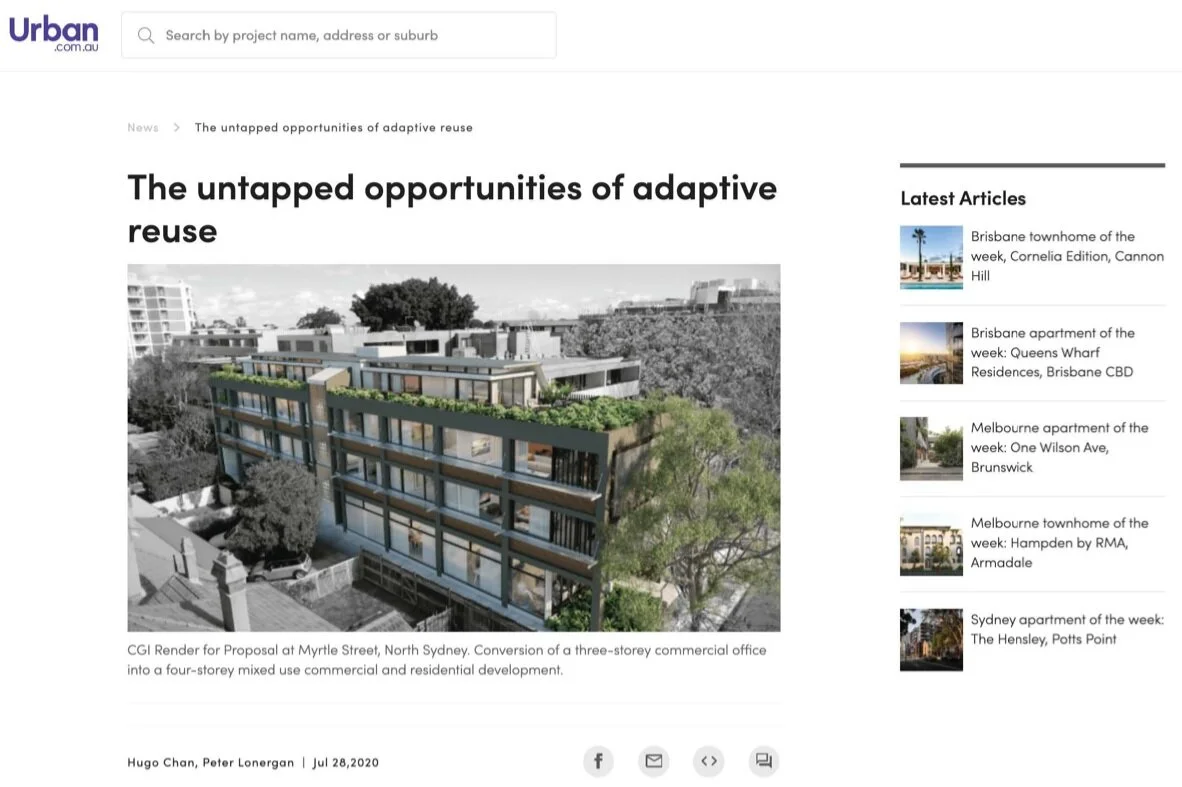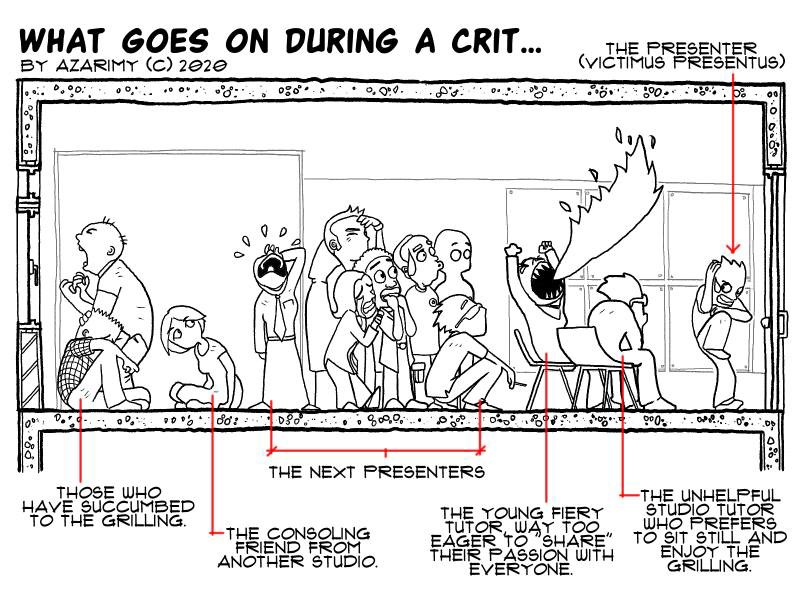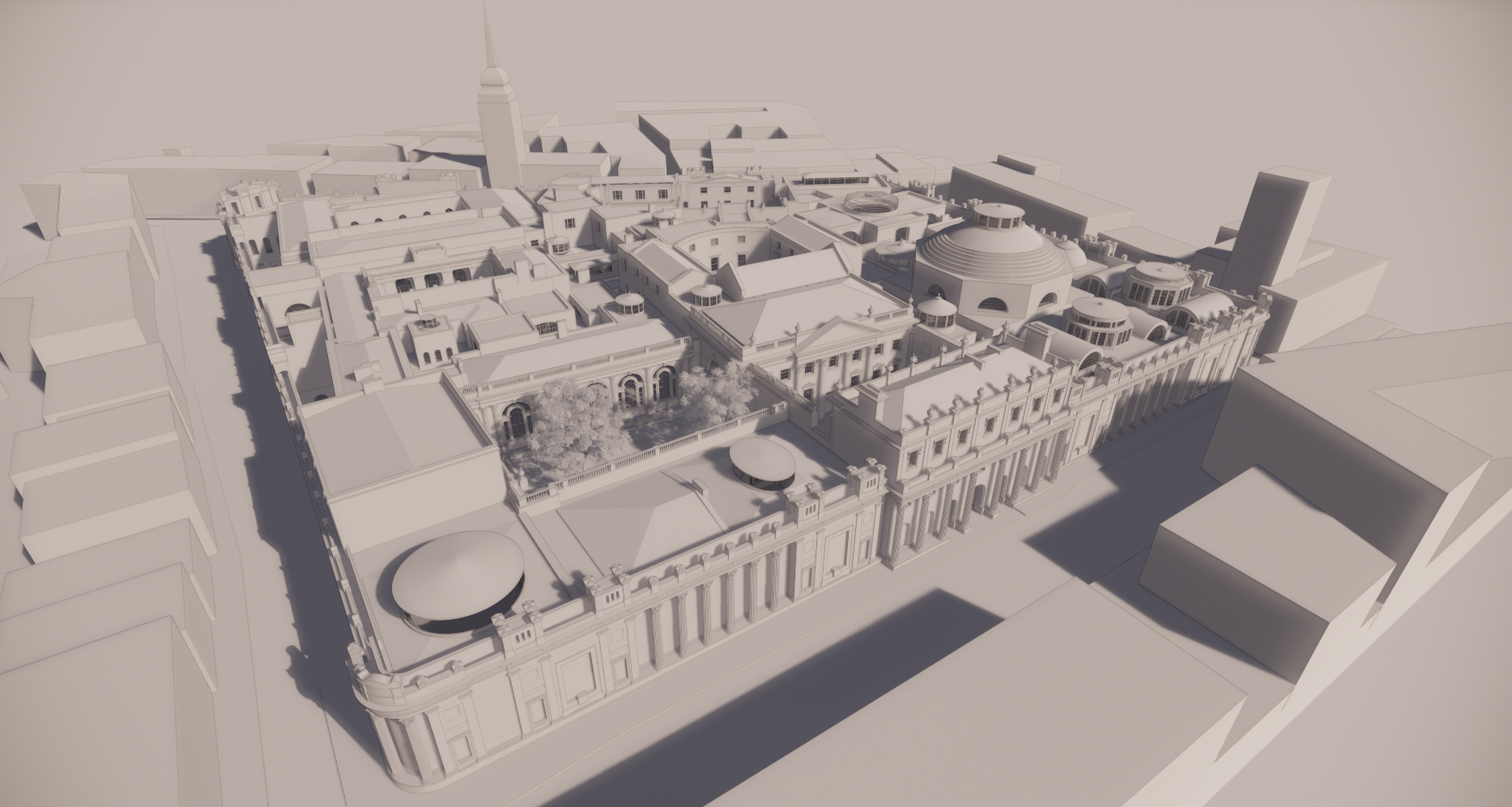Co-written with Peter Lonergan, this article responds to the Bulletin’s theme of ‘What are we doing?’ by examining how we respond, recover and rebuild after the bushfire and how we can work towards a more resilient, climate adaptive future.
Read MoreIn a time of climate crisis, this article how do you begin to remould an industry whose entire structure has become so embedded within systems of capital? It looks towards recent decisions of the NSW Land & Environment Court and the embedding of ESD principles as one avenue architects may look towards shifting the current cradle to grave construction mindset.
Read MoreA quick fire response to the NSW Treasurer's 'tongue-in-cheek' article on ten buildings he'd like to demolish. This article argues that the desire for demolition remains within the traditional 'cradle-to-grave' model of thinking, in a time when we should be focusing on recycling and reuse to push for a circular approach to construction.
Read MoreAn article co-authored with Peter Lonergan (Director, Cracknell & Lonergan), unpackaging the NSW Planning System and the hidden opportunities for re-developing sites and the incentives associated with adaptation rather than building anew to achieve a more sustainable design outcome.
Read MoreThe resource intensive cycle of demolition and construction seems endless, but in this article, I argue that through adaptive reuse we can imagine a more sustainable approach.
Read MoreExamining the issues of anxiety, stress and overwork experienced by students at architecture school, this article, working in tandem with leading business consultants and psychiatrists, begins to un-package how we should be changing design studio culture to promote better wellbeing and healthier environments for learning in architecture.
Read MoreIn an age of automation and with the rise of artificial intelligence, this article considers how emergent BIM technologies may help to re-shape and improve our ability to work within heritage contexts. Challenging traditional notions of recording, analysing and interpreting historic buildings, new technologies can reveal hidden secrets and provide new opportunities for understanding the built works which came before us.
Read MoreReflecting on the sustainable lessons of adaptive reuse, this article argues that it is high time architects came to terms with addressing the inevitability of change inherent in all buildings and begin to think about the ways we should try to re-consider and re-use the buildings already built.
Read MoreArchitecture Bulletin | V76, Iss.03, pp.28-29
Responding to the Bulletin’s theme of Climate Crisis, this article posits that architects must fundamentally rethink how cycles of demolition and construction operate within the build environment. It argues that it is far too easy to continually demolish and build anew and that adaptive reuse enables us to shift our thinking into a more sustainable and sensitive approach to our urban fabric.
It is perhaps fitting that in 2012, starchitect Frank O. Gehry designed the abstract white stage set for Christopher Alden’s abstract and sublime production of Mozart’s Don Giovanni by the Los Angeles Philharmonic. I certainly would not be surprised by the many clients, builders and even fellow architects who wouldn’t wish to see Gehry consigned to flames of hell, dragged into its depths for his unapologetic architecture and obsession with moving fish. Indeed even I at times, even when looking at his latest ‘crumpled paper bag’ (as it is ‘affectionately’ known) creation in my home of Sydney must look up and quizzically enquire, “Mr. Gehry, what do you think you are doing?”
Read More“I foresee all kinds of unforeseeable problems. If I could foresee them, then they wouldn’t be unforeseen!”
- Sir Humphrey Appleby, Yes Prime Minister
The classic 1980s British Television sitcom Yes, Prime Minister, serves as the commencement of my intrigue into the architect’s legal role and obligation. As complex and profoundly absurd the quote about deception is, it does for me represent the relationship between the architect and the law: that underneath a guise of complexity are a set of very simple driving principles.
Read More“Common sense, common care, and common prudence, were all sunk into Mrs. Dashwood’s romantic delicacy.”
Sense and Sensibility, Jane Austen
Where does morality begin? Where does architectural duty end? For me, these questions begin with the history of architecture and the preservation of the urban fabric, something which served as the original inspiration to study architecture. Whilst I may not possess the same ‘romantic delicacies’ as Mrs. Dashwood in Sense and Sensibility, I am fully aware that architects, as builders of the social sphere, cannot afford to drop the moral high standard which is expected of us. Indeed it is essential for architects, as negotiators and as the generalist coordinator as we have previously identified to uphold the standards of society - and where fault is found, whilst it is not necessarily our legal duty, it is certainly our moral duty to enforce change for the greater good.
Read More











